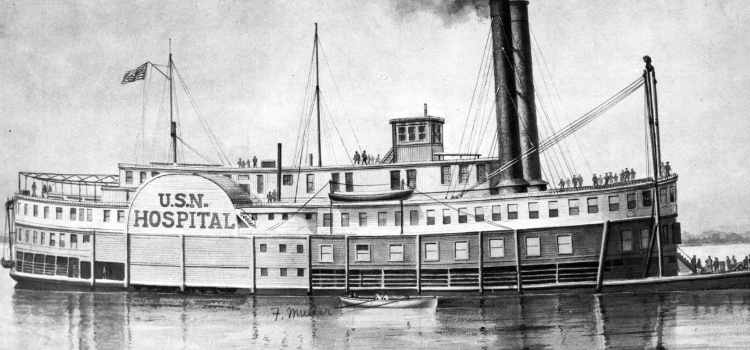In the military, everyone loves to compare their job with others as part of a contest to see who has it worst. Some cite their terrible living conditions, others tell horror stories of intense training, and the rest point to the awful, boring tasks handed to them. But there’s only one clear winner of the Absolute Worst Job contest — and that goes to the U.S. Navy’s loblolly boy.
Now, we’re not saying this to discredit your terrible MOS or rating — we’re sure yours is perfectly horrible — but unless your job is centered almost entirely around handling the medical waste that accumulated out at sea in the 1700s, then you probably can’t compete.
If reading about medical waste makes you a bit squeamish, we wouldn’t blame you if you’d instead like to check out our article about cute animals greeting returning troops. No? Alright, weirdo — but don’t say we didn’t warn you.
The loblolly boy was the junior-most enlisted surgeon’s assistant back in the day. While the average operating table on a vessel consisted of the surgeon and a surgeon’s mate or two, all of the work that was deemed “below the officer” was shoveled directly onto the loblolly boy.
The name comes directly from the English slang term ‘lob,’ which meant ‘bubbling’ or ‘boiling,’ and ‘lolly,’which was a soup or broth. This is in regards to one of the more lighthearted tasks assigned to these troops: to feed soup or stew to the injured sailors and Marines.
But since they were the lowest-ranking member of the medical team, they also had to handle the other tasks associated with nursing the wounded, like cleaning chamber pots, organizing medical supplies, cleaning medical instruments, and, of course, assisting in surgery.

Which also involved a lot of cleaning. Pre-Industrial Era medicine wasn’t known for its cleanliness.
Back in the 18th century, amputation was a go-to answer for a lot of dire medical situations. Wound too bad? Amputation. Infection looks like it’s spreading? Amputation. Bone shattered too much? Amputation. Skin starting to turn green after you ignored a simple scrape? Amputation. It’s a pretty grim solution, but there’s no denying its effectiveness when the alternative was often death.
This was also long before anesthetics or analgesics, so the operations had to be done quickly — because, you know, that was the most “humane” way to cut someone’s leg off. They’d have the loblolly boy hold them down while Doc sawed it off. Problem is, the loblolly boy was often just a kid or young adult, which made restraining a fully grown Marine who’s getting parts cut off a significant challenge.
Old Victorian English surgeons in a hospital got the process down to 30 seconds flat. Civil War surgeons in the midst of a battle would clock in at around the same time, but the process was a whole lot messier. The loblolly boy, of course, had to clean up the inevitable splatters before the next patient came in. Disposing of amputated limbs was one of the primary duties of the loblolly boy.

We’re not talking the cleanest of working environments here, but at least they tried their best.
(National Archives)
The job wasn’t the most glamorous, but it did open the doors for loblolly boys to work their way up in the medical field. This gave an opportunity to those who would otherwise not have it — for social, economical, or racial reasons. Many of the first African American surgeons got their start in the military as loblolly boys.
Ann Bradford Stokes, an escaped slave, was taken aboard the USS Red Rover during the Civil War and became both one of the first women to enlist and one of the first African Americans to enlist in the United States Navy. Though she could not read or write during her time of service, she did her job dutifully for years and became the very first woman in U.S. history to receive a military pension.
This terrible job evolved throughout the years, later known as surgeon’s steward, apothecary, and bayman, before becoming what we today know: the hospital corpsmen.

If you’re a corpsman, now you know you can always win the debate of how’s job has been historically worse.
(U.S. Navy photo)
This article originally appeared on We Are The Mighty
More From We Are The Mighty
5 Reasons Why Troops Stick Together After the Military
4 Reasons Why Showering On Deployment is Disgusting
7 of the Greatest Songs Every Veteran Knows
6 Things You’d Take Back Before Leaving the Military
6 Dumb Things Veterans Lie About on the Internet
Follow We Are The Mighty on Twitter






